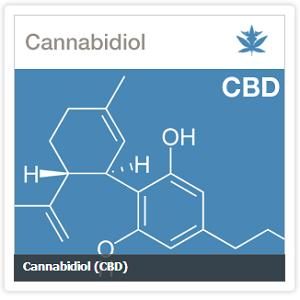 Often medical marijuana foes will use certain claims to support the position that cannabis has no proven medical benefits. One of the frequently-used claims is that there are no double-blind, placebo-controlled studies showing marijuana’s medicinal benefits. The University of California’s Center for Medical Cannabis Research has produced studies that meet that criteria and support the medical properties of cannabis.
Often medical marijuana foes will use certain claims to support the position that cannabis has no proven medical benefits. One of the frequently-used claims is that there are no double-blind, placebo-controlled studies showing marijuana’s medicinal benefits. The University of California’s Center for Medical Cannabis Research has produced studies that meet that criteria and support the medical properties of cannabis.
www.cmcr.ucsd.edu/index.php?option=com_content&view=category&id=41&Itemid=135
The CMCR lists 13 scientific papers on their Completed Studies page, including these two:
Placebo-controlled, Double Blind Trial of Medicinal Cannabis in Painful HIV Neuropathy
INVESTIGATOR: Ronald Ellis, M.D., Ph.D.
STUDY LOCATION: University of California, San Diego
PROJECT TITLE: Placebo-controlled, Double Blind Trial of Medicinal Cannabis in Painful HIV Neuropathy
PROJECT TYPE: Clinical Study
STATUS: COMPLETE
RESULTS:
Of 127 volunteers screened, 34 eligible subjects enrolled and 28 completed both cannabis and placebo treatments. Among completers, pain relief was greater with cannabis than placebo (median difference in DDS pain intensity change, 3.3 points, effect size = 0.60; p = 0.016). The proportions of subjects achieving at least 30% pain relief with cannabis versus placebo were 0.46 [95% CI 0.28, 0.65] and 0.18 [0.03, 0.32]. Mood and daily functioning improved to a similar extent during both treatment periods. Although most side effects were mild and self-limited, two subjects experienced treatment-limiting toxicities.
Smoked cannabis was generally well-tolerated and effective when added to concomitant analgesic therapy in patients with medically refractory pain due to HIV DSPN.
The full results of this study were published in the journal Neuropsychopharmacology.
Their second study:
A Double Blind, Active Placebo Controlled Crossover Trial of the Antinociceptive Effects of Smoked Marijuana on Subjects with Neuropathic Pain; Correlation with Changes in Mood, Cognition, and Psychomotor Performance
INVESTIGATOR: Barth Wilsey, M.D.
STUDY LOCATION: University of California, Davis
PROJECT TITLE: A Double Blind, Active Placebo Controlled Crossover Trial of the Antinociceptive Effects of Smoked Marijuana on Subjects with Neuropathic Pain; Correlation with Changes in Mood, Cognition, and Psychomotor Performance
PROJECT TYPE: Clinical Study
STATUS: COMPLETE
RESULTS:
Thirty-eight patients with central and peripheral neuropathic pain underwent a standardized procedure for smoking either high-dose (7%), low-dose (3.5%) or placebo cannabis. In addition to the primary outcome of pain intensity, secondary outcome measures included evoked pain using heat-pain threshold, sensitivity to light touch, psychoactive side-effects, and neuropsychological performance. A mixed linear model demonstrated an analgesic response to smoking cannabis. No effect on evoked pain was seen. Psychoactive effects were minimal and well-tolerated, with some acute cognitive effects, particularly with memory, at higher doses.
The full results of this study have been published in the Journal of Pain.
Beyond these two studies, other institutes of higher learning have been generating scientific papers about human trials related to the effects of cannabis.
From the Journal of Clinical Oncology:
Comparison of Orally Administered Cannabis Extract and Delta-9-Tetrahydrocannabinol in Treating Patients With Cancer-Related Anorexia-Cachexia Syndrome: A Multicenter, Phase III, Randomized, Double-Blind, Placebo-Controlled Clinical Trial From the Cannabis-In-Cachexia-Study-Group
From the Multiple Sclerosis Journal:
Efficacy, safety and tolerability of an orally administered cannabis extract in the treatment of spasticity in patients with multiple sclerosis: a randomized, double-blind, placebo-controlled, crossover study
From the Journal of Cannabis Therapeutics:
A Phase I, Double Blind, Three-Way Crossover Study to Assess the Pharmacokinetic Profile of CannabisBased Medicine Extract (CBME) Administered Sublingually in Variant Cannabinoid Ratios in Normal Healthy Male Volunteers (GWPK0215)
Source: The Compassion Chronicles







